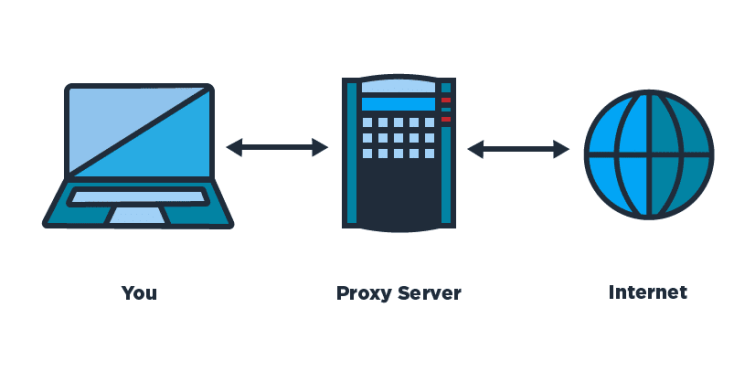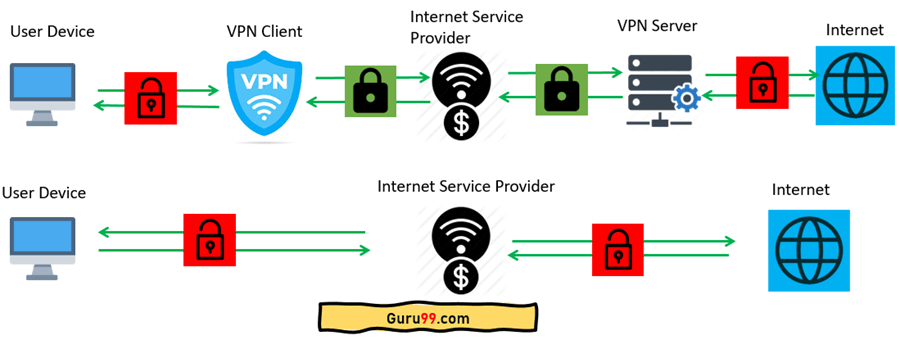Featured
Table of Contents
Proxy Vs. Vpn: Which One Is Suitable For You?
In case if you are already using a VPN, then linking to a site or app utilizing a proxy server would be unneeded. You can use a VPN and proxy together to include an additional layer of privacy to your network connection. However, you need to keep in mind that that you need to have a steady Web connection.


Here are the essential selection criteria to choose a VPN: VPNs can be sluggish, and for that reason, it might be tough to stream video online. You need to very first experiment with the VPNs. If the server speed is good, then you can buy it. It is great that you pick a VPN having more proxy servers at several places.

All interaction online happens through data packets. Applications and user devices exchange information in the type of demands and reactions. A client sends out a request to any application or web server by utilizing the server's IP address, and the server returns the reaction to the client's IP address.
Vpn Vs Proxy: What's The Difference And Which Is Right For ...
You can use a proxy server prior to the customer (forward proxy) or your application server (reverse proxy). Here's how clients and servers interact when you use a forward proxy server: When the customer sends a web demand, it first goes to the customer's proxy server The proxy server replaces the customer's IP address with its own IP address The proxy server forwards the web demand to the application server The application server processes the request and sends out the action information back to the proxy server The proxy server forwards the response back to the customer When you use a forward proxy server, the server is not aware of the actual customer and believes the proxy is the client.
Something failed. Wait a minute and attempt again Try once again.
VPNs are very similar. Like proxies, they mask your IP address and send out all your web traffic to a remote server so that you can access geo-restricted content however also browse the web anonymously. Nevertheless, a VPN service works on the operating system level. This implies that it reroutes all your traffic, whether it is originating from your web browser or a background app.
What Is The Difference Between Proxy Vs Vpn Vs Tor?
All the data shared between the Web and your gadget are certainly protected in encrypted tunnels. In this method, a VPN prevents your activity from being tracked by your ISP, federal government and any hackers trying to intercept your gadget. We go in depth on the ins and outs in our dedicated short article answering the question: what is a VPN? The primary distinction between them is that proxies will only reroute application traffic, while VPNs can do this for the entire operating system.
While encryption is absolutely a good idea, the time it takes to secure internet traffic in between your device and a remote server might lead to a slower connection. The area of the VPN server can also hamper efficiency, but premium services tend to fix these concerns and if it seems like an issue, we 'd advise that you obtain the services of the fastest VPN you can.
Like VPNs, they'll need some time to reroute your internet traffic. What's more, proxy services are typically totally free to download and will likely be swamped with traffic from others.
Difference Between Proxies & Vpn
Things like an integrated kill switch, worldwide servers, DNS leakage protection and running system-level security mean they're more powerful than proxies. If you just want to conceal your IP address for confidential web surfing and bypassing geo-restrictions, proxies are fine.
Compare today's finest overall VPNs.
Nowadays, many internet users compare a proxy vs VPN, questioning what they need to utilize when browsing to protect themselves. In 2020, 84% of consumers stated they appreciated their privacy and information, and 80% were willing to act to protect it. Virtual Personal Networks (VPNs) and proxies are a possible option due to the fact that they include an extra layer between an internet browser and any data tracking business or government.
What Is The Difference Between Proxy And Vpn?
With just the technical definitions, it can be challenging for a typical user to inform a VPN apart from a proxy. To help you understand how a VPN is different from a proxy server, we've highlighted the major distinctions comparing VPNs with proxies regarding security, personal privacy, cookies, expense, and speed.
Just after the data has actually been sent through to the customer does it decrypt the data for other programs to utilize. So not only is your identity concealed from the website or service you visit, your ISP, or even the network does not understand what data you're packing either. All they can see is that you're packing encrypted information from a VPN.
Even if you're on an open WIFI network, the file encryption secures your data from being obstructed by destructive hackers. And given that the VPN utilizes end-to-end encryption, your ISP, router, company, or government can't access your data either. That becomes part of the reason that the Chinese government is trying to restrict the general public's access to VPNs.
What's The Difference Between A Proxy Server & Vpn?
And with great reason. Due to the fact that of this new law, essentially every website that tracks you with cookies has to ask for your permission.

And here's the important things about cookies, they're stored and saved money on your computer's hard disk. Cookies will get downloaded to your computer through the proxy server or VPN. But with a VPN, the cookie will mistake the VPN's IP address for your own, which will offer some level of security against fingerprinting and other digital tracking methods.
When you start utilizing a VPN or proxy server, you need to clear all the cookies on your computer. If not, existing cookies might disrupt the added layer of personal privacy. The website will link it with your initial area and IP address and use it to aid in your device's fingerprinting.
Latest Posts
The Best Vpns For Small Business In 2023
Best Vpns Of 2023
5 Best Vpns For Mobile Data To Protect Your Privacy